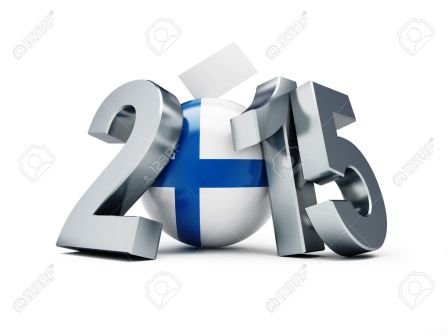The European Policy Center think tank held a post-election briefing on the results and implications of the Finnish parliamentary elections, with Ms Annika Hedberg (Senior Policy Analyst, European Policy Centre) and Mr. Jarno Hartikainen (EU correspondent, Kauppalehti). The panelists tried to analyze and explain the results, the way the results came up, the likelihood of a new coalition government, the economic and foreign policy, especially the immigration issue. The election results are: 1st party the Centre of Finland (Juha Sipila, ALDE), 2nd the Finns (Timo Soini, ECR), 3rd the National Coalition (Alexander Stubb, EPP) and 4th Social Democratic (Antti Rinne, S&D). That’s to say that the Finnish elections of 2015 resulted with pro-EU coalition losses, and having brought to the political scene anti-NATO parties.

Ms Hedberg began her contribution by underlying the main policy areas that prevailed during the election campaign like the: economy, trade (especially with Russia), structural reforms and agenda, security concerns vis-à-vis Russia and NATO membership, foreign policy (agreement for 3rd bailout with Greece) and immigration. She characterized the elections result as a change, a victory for the opposition party. An election around personalities and not politics. She further referred to the peculiarity of the Finnish electoral system given the fact that more people voted for the National Coalition than the Finns but the National Coalition remains 3rd party.
She wondered whether the new coalition government would implement a new policy agenda and structural reforms, taking into consideration a possible and imminent opposition of the 4th Socialist party. According to Ms Hedberg the Foreign Security Policy did not influence the election result, although there are main stumbling blocks that have to be overcome in these crucial policy area vis-à-vis Finland – EU – Russia relations, and claimed that Olli Rehn is likely to be the new Foreign Minister of Finland. She concluded by saying that she did not foresee a Finnish NATO membership.
Mr. Hartikainen expressed his opinion that the election results indicate the willingness of people for change, which have been claiming that the last 4 years of the government have been unproductive and ineffective. He pointed out the effects of the Finnish elections on the EU Affairs, the potential coalition of the new government and the economic situation of Finland. Mr. Hartikainen emphasized the likelihood of the composition of a centre-right coalition government –which will take time to be set up considering that last time it took 2 months- by the three first parties. He tends to believe that this new government will be more ideologically coherent, although there will automatically be a shift towards the right and the conservatism reflecting the very nationalistic and pragmatic populist approaches of the Finns party. On the aspect of the policy implications on the EU level, he stressed out that the new government would be suspicious to a further integration and subsequently to the deepening of the Economic and Monetary Union (EMU).
On the foreign relations he claimed that an agreement will be reached on a 3rd bailout program for Greece and added that the new government should work more on the energy and climate issues and develop further the concept of bio-economy. Mr. Hartikainen would like to see if the new government will implement the austerity measures and the structural reforms and urged the new parties to act considering always the reputation of Finland as such. Finally, he flagged up the elections result as a change of faces and not politics.
